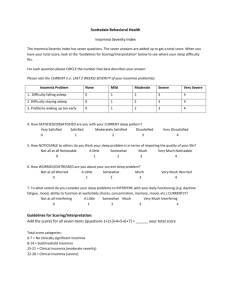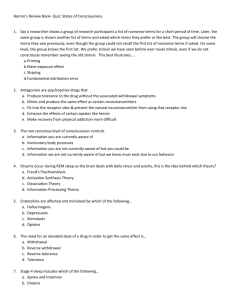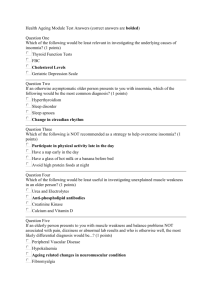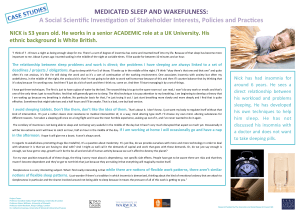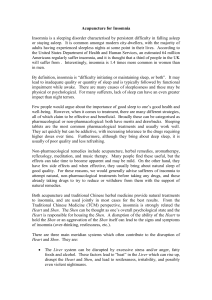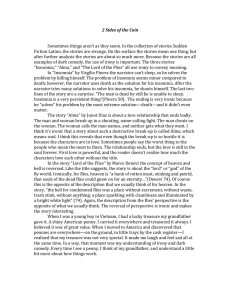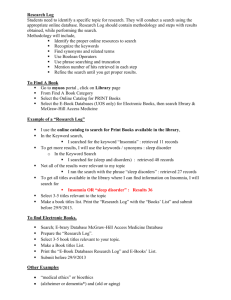2016 Gatlinburg Conference Poster PS-52
advertisement
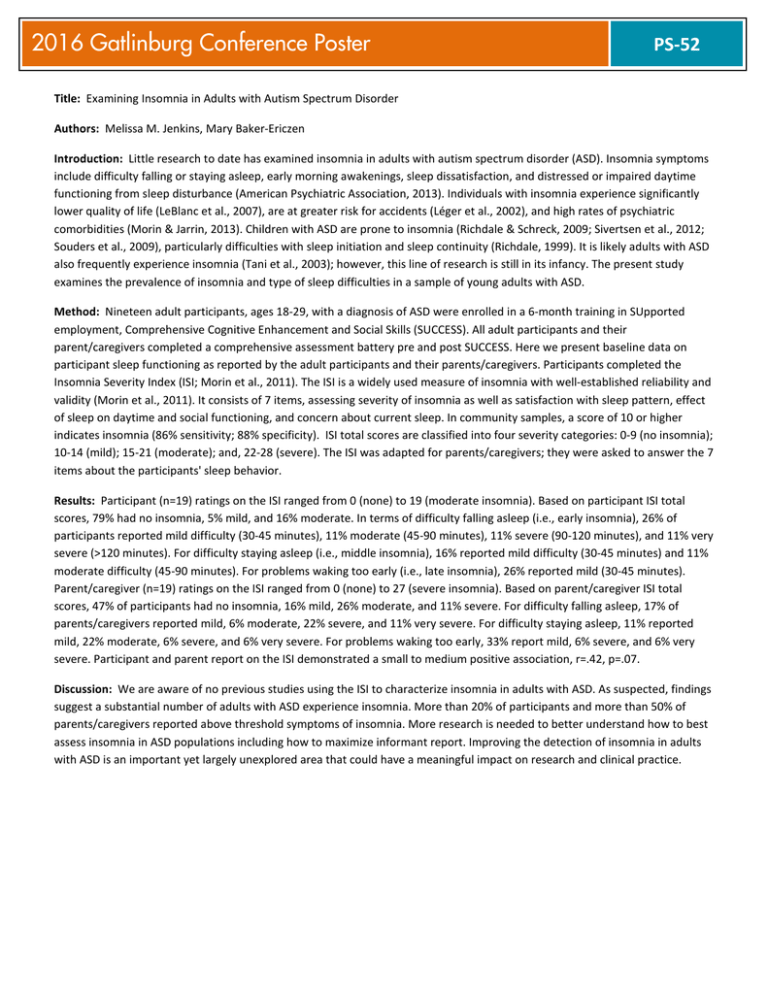
2016 Gatlinburg Conference Poster PS-52 Title: Examining Insomnia in Adults with Autism Spectrum Disorder Authors: Melissa M. Jenkins, Mary Baker-Ericzen Introduction: Little research to date has examined insomnia in adults with autism spectrum disorder (ASD). Insomnia symptoms include difficulty falling or staying asleep, early morning awakenings, sleep dissatisfaction, and distressed or impaired daytime functioning from sleep disturbance (American Psychiatric Association, 2013). Individuals with insomnia experience significantly lower quality of life (LeBlanc et al., 2007), are at greater risk for accidents (Léger et al., 2002), and high rates of psychiatric comorbidities (Morin & Jarrin, 2013). Children with ASD are prone to insomnia (Richdale & Schreck, 2009; Sivertsen et al., 2012; Souders et al., 2009), particularly difficulties with sleep initiation and sleep continuity (Richdale, 1999). It is likely adults with ASD also frequently experience insomnia (Tani et al., 2003); however, this line of research is still in its infancy. The present study examines the prevalence of insomnia and type of sleep difficulties in a sample of young adults with ASD. Method: Nineteen adult participants, ages 18-29, with a diagnosis of ASD were enrolled in a 6-month training in SUpported employment, Comprehensive Cognitive Enhancement and Social Skills (SUCCESS). All adult participants and their parent/caregivers completed a comprehensive assessment battery pre and post SUCCESS. Here we present baseline data on participant sleep functioning as reported by the adult participants and their parents/caregivers. Participants completed the Insomnia Severity Index (ISI; Morin et al., 2011). The ISI is a widely used measure of insomnia with well-established reliability and validity (Morin et al., 2011). It consists of 7 items, assessing severity of insomnia as well as satisfaction with sleep pattern, effect of sleep on daytime and social functioning, and concern about current sleep. In community samples, a score of 10 or higher indicates insomnia (86% sensitivity; 88% specificity). ISI total scores are classified into four severity categories: 0-9 (no insomnia); 10-14 (mild); 15-21 (moderate); and, 22-28 (severe). The ISI was adapted for parents/caregivers; they were asked to answer the 7 items about the participants' sleep behavior. Results: Participant (n=19) ratings on the ISI ranged from 0 (none) to 19 (moderate insomnia). Based on participant ISI total scores, 79% had no insomnia, 5% mild, and 16% moderate. In terms of difficulty falling asleep (i.e., early insomnia), 26% of participants reported mild difficulty (30-45 minutes), 11% moderate (45-90 minutes), 11% severe (90-120 minutes), and 11% very severe (>120 minutes). For difficulty staying asleep (i.e., middle insomnia), 16% reported mild difficulty (30-45 minutes) and 11% moderate difficulty (45-90 minutes). For problems waking too early (i.e., late insomnia), 26% reported mild (30-45 minutes). Parent/caregiver (n=19) ratings on the ISI ranged from 0 (none) to 27 (severe insomnia). Based on parent/caregiver ISI total scores, 47% of participants had no insomnia, 16% mild, 26% moderate, and 11% severe. For difficulty falling asleep, 17% of parents/caregivers reported mild, 6% moderate, 22% severe, and 11% very severe. For difficulty staying asleep, 11% reported mild, 22% moderate, 6% severe, and 6% very severe. For problems waking too early, 33% report mild, 6% severe, and 6% very severe. Participant and parent report on the ISI demonstrated a small to medium positive association, r=.42, p=.07. Discussion: We are aware of no previous studies using the ISI to characterize insomnia in adults with ASD. As suspected, findings suggest a substantial number of adults with ASD experience insomnia. More than 20% of participants and more than 50% of parents/caregivers reported above threshold symptoms of insomnia. More research is needed to better understand how to best assess insomnia in ASD populations including how to maximize informant report. Improving the detection of insomnia in adults with ASD is an important yet largely unexplored area that could have a meaningful impact on research and clinical practice.
